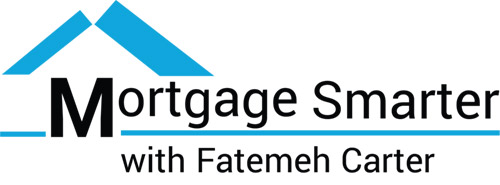Mortgage Process
Mortgage Prequalification
During the prequalification process, I will review your personal finances and home-buying goals. This step will allow you to match the type of home you want to buy with what you think you can afford. I will discuss loan programs and down payment requirements. This step is not approval for any loan; all loan terms and conditions are subject to final approval by an underwriter.
Providing Documentation
Whether you are getting prequalified or requesting a full loan approval, you will need to document your assets, income and credit history. This step is done by providing bank and investment statements, pay stubs and tax information such as a W-2 or tax return, and I will also order a credit report. Be sure to talk with me about gathering documentation that may help best position you for loan approval.
Shopping for a Home
The first thing most people do when they decide to shop for a home is get on the Internet. On many websites, you can obtain more data about homes and neighborhoods in an hour than you could ever discover offline. You may also want to work with a real estate agent. When you choose a real estate agent, you are getting a licensed professional, often with years of experience. Agents are knowledgeable about trends in home values in different neighborhoods, and are often part of a network that trades information about unpublicized properties. Your agent can also make an informed judgment on the value of a home and negotiate a price on your behalf. I have a handful of great realtors I’ve worked with in the past. I know that they do a great job and treat my clients the way I will treat them.
Getting Homeowners Insurance
While it may seem like putting the cart before the horse, it’s important not to rush your insurance at the last minute. In fact, you can begin looking for an insurance agent as soon as you start searching for a home, which will offer you time to shop around and obtain multiple quotes. You may qualify for a discount if you bundle your home, car and life insurance with one company.
An insurance agent will discuss deductibles, coverage amounts and limits, personal liability coverage if someone is injured at your home, and other aspects of insurance and home ownership. Your lender will also require that you purchase flood insurance if your home is in a flood plain. Additional coverages, such as for wind and earthquake, should also be discussed with your insurance agent.
Making an Offer
If you are using a real estate agent or Realtor®, he or she does the legwork of checking the prices of comparable homes in the area (“comps”) while you make your decision on an offer. Together, you will balance an optimal selling price against the current demand in the marketplace to come up with your offer.
Negotiating a Final Sale
Here is where your agent proves to be your strongest ally. A sale can be a stressful situation for both buyer and seller, so it’s often valuable to have someone in your corner who can logically explain and detail the reasoning behind an offer or counter. Ultimately, you and the seller will agree on a price and any conditions (“contingencies”) placed in the contract, like the amount of time the seller can remain in the home or the seller’s need to finalize the purchase of a new home. You will pledge to put an agreed-upon amount of money on deposit (also called escrow or earnest money deposit) to show your good faith in fulfilling the contract. You should expect that this deposit would be non-refundable. Finally, you will set a closing date.
The Financial Process Begins
Once a sale price is agreed upon and a purchase agreement is finalized, it’s time to review the information from the preapproval process with me, to make sure nothing about your financial status has changed. A Loan Estimate (LE) will disclose all the known costs involved in obtaining the loan, some of which may be covered by the seller under the purchase agreement. At the same time, you or the seller will choose the title and/or escrow agents in accordance with the purchase agreement. The title agent will confirm and insure the title and deed to the property; should you have an escrow agent, the escrow agent holds your good faith deposit, collects your down payment and will finalize the financial aspects of the loan and the purchase transaction. In some states, an attorney is required to close the loan.
The next step is locking in the interest rate of your loan. I will be there to guide you through this procedure and explain all costs to you.
The Home Inspection
A home can be an emotional purchase, and no home is perfect, not even a new one. So before you finalize the purchase with the seller, it’s important to have an independent, qualified inspector evaluate the property, for your own peace of mind. Attend the inspection, ask questions and take notes. You might learn about issues you’ll need to take care of in the future.
The Home Appraisal
In order to finalize your loan, an appraiser must determine that the selling price is consistent with current market values, and provide a value for the subject property by performing an on-site review, taking photos and documenting its value. There are a number of factors the appraiser takes into consideration to come up with a market value, starting with the size of the property and important structural features, such as the condition of the roof and foundation. Next, the appraiser looks at the unique features of the home that might affect its value. Finally, the appraiser compares your home with similar homes in the area (the comps) and determines a market value. I will provide a copy of the appraisal report once it’s completed.
Underwriting and Risk Assessment
You’re in the home stretch, and now it’s time to begin finalizing your loan. Once again, your loan file will be subject to a thorough personal review by a loan underwriter. The underwriter is generally checking the six C’s:
Credit – your history of paying your bills and carrying debt
Capacity – your debt-to-income ratio
Capital – your down payment and savings
Collateral – the property’s qualifications and appraisal
Conditions – sales in the open market
Common sense – your trustworthiness
Typically, you can expect the underwriting phase to take between one and five business days once documentation is received and there are no outstanding document requests.
Loan Conditions
It’s likely the lender will come back to you with some conditions for finalizing your loan. This is not a rejection; rather, the underwriter has flagged certain items in your loan application that require further explanation. You may need to provide more personal financial documents, written explanations or affidavits. You may also need to settle outstanding accounts. Once again, this is a time when I will work with you to explain the list of conditions and help you satisfy them.
Final Approval of Your Loan
Depending on the number of items that need to be addressed, the final approval can take anywhere from a day to a month. The length of time for an approval is determined by the number and type of outstanding conditions. You can help minimize the amount of time it takes by providing documentation as soon as it’s requested. Once you and I have satisfied any conditions, your application will be submitted for final approval. Once you receive a “Clear to Close” instruction, you’re on your way to the final phase! A Closing Disclosure (CD) of the final loan terms and the costs associated with the loan will be sent to you for review. There is a mandatory waiting period of three days from the time you receive the Closing Disclosure before you can sign the final loan documents.
Getting Your Closing in Order
At this point, it’s time to order the closing documents and prepare for the transfer of funds. Here’s when it all comes together. You’ll need to have your homeowner’s insurance policy and any extra certifications required by your lender (such as a termite inspection or a site survey).
On the lender’s side, they prepare the final loan documents and send them to your escrow officer or closing agent/attorney, who will add specific details regarding any taxes or other items to be paid at signing. Generally, the lender will review the signed paperwork before authorizing the loan proceeds to be sent to the escrow agent or closing agent/attorney.
The Final Walk-Through
Once a signing is scheduled and your loan is approved, the only thing left to do is take a final walk-through of your new home, especially if any repairs were negotiated with the seller after the home inspection. While you don’t need to schedule a second professional inspection, take your time and use a checklist to ensure that all the items have been fully addressed.
Sometimes a seller will be asked to include (or will simply include on their own) a home warranty that covers appliances, minor electricals such as doorbells and fans, and basic plumbing stoppages. Home warranties are generally less than $500, and can save the seller some extra grief from the buyer if something goes wrong shortly after the sale.
Signing/Closing Day: It’s Finally Here!
Your escrow officer or closing agent/attorney will walk you through the closing process, get all the documents together and make sure everything is legally signed and witnessed.
At this time, you’ll present the balance of the down payment and a certified check for the closing costs.
The documents you’ll sign include a final Closing Disclosure, which details the sale price, financing details, real estate taxes and other payments made in the sale. Finally, you’ll sign the promissory note, the deed of trust/mortgage and other documents required by federal, state and local law.
Getting The Keys
Generally, unless you’ve prearranged otherwise, you should receive keys to your new home the same day as the closing. Although a shiny set of keys will feel great in your hands, your new home won’t quite feel like “home” until…
Moving Day!
Whether you’re doing it yourself or hiring a moving company, this is a day to celebrate! Note that many professional movers require weeks of advance notice to schedule pick-ups, especially if they are traveling long distances. Interview your movers just as you did your real estate agent and me.

